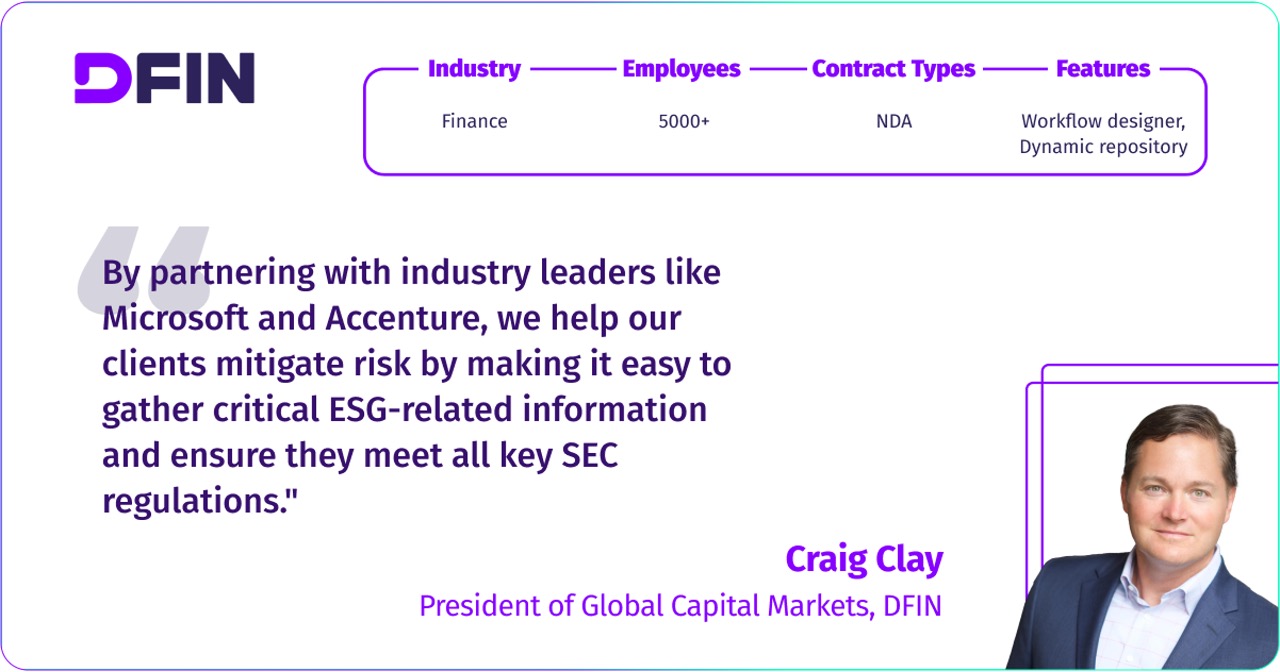Revolution Medicines, an innovative biotech company, was looking for a software solution that would boost collaboration and optimize their SEC filing process.
Does Your Company Have a Dark Data Problem?
DFIN’s strategies to protect your company’s dark data
Dannie Combs contributed an article for Cyber Defense Magazine to highlight the risk that storing dark data (information that an organization collects, stores for compliance or other reasons, and then doesn’t use, through neglect, lack of interest, or need) poses to a company.
Five Strategies to Protect Your Company’s Dark Data
Dannie Combs contributed an article for Brilliance Security Magazine to highlight the risk that storing dark data (information that an organization collects, stores for compliance or other reasons, and then doesn’t use, through neglect, lack of interest, or need) poses to a company.
Optimize Efficiencies with a Customizable SEC Filing Interactive eCalendar
It eliminates the need to manually keep track of SEC filing dates and allows users to quickly download individual filing dates or download all their filing dates for an entire fiscal year for forms such as 10-Ks, 10-Qs and 20-Fs. Dates are customized by form type and fiscal year end.
Compatible with Microsoft Outlook and Google Calendar and runs on desktop and mobile systems, including iOS and Android devices.
Get the SEC Filing Interactive eCalendar today
How We Helped a Global Service Provider in the Oil Industry Optimize SEC Filing
Discover how DFIN helped Core Laboratories, one of the world’s leading providers of proprietary reservoir services for oil companies, streamline complex global filings with ActiveDisclosure.
The Risks of Dark Data Are Rising

How Ironclad helps Signifyd review contracts 85 times faster than before
Ironclad accommodates Signifyd’s end-to-end commerce protection
How Ironclad helps Signifyd review contracts 85 times faster than before
What is SEC Filing?
Publicly traded companies and other entities are required by the SEC — or Securities and Exchange Commission — to file certain disclosure forms. These different types of SEC filings not only ensure regulatory compliance, but they also provide need-to-know information to the public. With the shift to the EDGAR Next system later in 2025, it’s more important than ever for companies to know what’s required of them.
DFIN’s Transformation on Track as 3Q Results Highlight Software Growth and Higher Margins
DFIN’s third quarter 2022 financial results, released this morning, demonstrate that our continuing transformation into a software-centric company is going strong.
In a difficult market, with IPO and M&A activity down significantly, we achieved higher margins and made solid progress toward our goal of software accounting for 55% to 60% of DFIN’s total revenue by 2026.
DFIN Reports Third Quarter 2022 Results
What is Form S-8?
Publicly traded companies are required by law to file certain forms with the Securities and Exchange Commission (SEC) as required by the Securities Exchange Act. Among them is Form S-8.